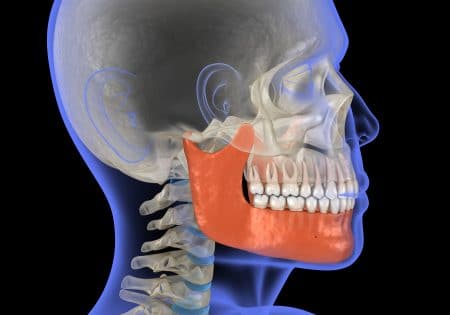 In our last blog, we looked at a common general oral health issue known as bruxism, or chronic teeth grinding. Today, we would like focus on a related oral health concern known as TMJ disorder, or TMD. In today’s blog, learn how this issue could lead to headaches and jaw pain, and what steps your Overland Park, KS, dentist can take to treat it.
In our last blog, we looked at a common general oral health issue known as bruxism, or chronic teeth grinding. Today, we would like focus on a related oral health concern known as TMJ disorder, or TMD. In today’s blog, learn how this issue could lead to headaches and jaw pain, and what steps your Overland Park, KS, dentist can take to treat it.
The Onset of TMD
Our jaw joints, known as the temporomandibular joints, connect the jaw to the skull. We need them to eat and speak! But when these joints are under intense stress and strain, this could lead to a disorder known as TMD. Over time, this issue could eventually cause trouble fully opening and closing the mouth, and lead to host of uncomfortable symptoms. The causes of the strain vary, but often include tooth loss, injury to the face or jaw, or issues with bite balance or dental misalignment. As part of your diagnosis, we will carefully examine your smile for signs of trouble to identify the factors behind your TMJ issues. This allows our team to recommend the most appropriate treatment option.
A Possible Link to Bruxism
Bruxism, or teeth grinding, could cause strain and lead to the onset of TMD. Likewise, untreated TMJ dysfunction could boost the risks of chronic teeth grinding. If you grind your teeth, then you may experience tooth sensitivity and toothaches. Other warning signs of TMJ problems include soreness in the face or jaw, a popping or crackling sensation in the jaw, headaches and migraines, and even aches in the neck or shoulders. If you begin to experience one or more of these symptoms, then please contact or team for a diagnosis. Treatment not only alleviates these uncomfortable symptoms, but helps prevent damage to your teeth and other oral health complications.
Solutions and Lifestyle Changes
First, try to make positive changes to your daily routine, like avoiding chewy or hard foods, as the actions needed to consume them could exacerbate the issue. Cut back on caffeine and also use a warm washcloth against the side of the face to ease tension when experiencing discomfort. Treatment varies, and could include orthodontics to correct misalignment, restorations to improve bite balance, or in most cases, an oral appliance. The appliance is created based on detailed impressions and images we take of your smile. The appliance will be worn as you sleep and fits much like mouthguard. The device actually repositions the jaw to ease strain and help you avoid uncomfortable symptoms.
Do You Have Questions About TMD?
Our preventive and general treatments can address your TMJ dysfunction and restore the health and comfort of your smile. To learn more about preventive treatment options, schedule your consultation by calling Family First Dental in Overland Park, KS, today at 913-381-2600.
